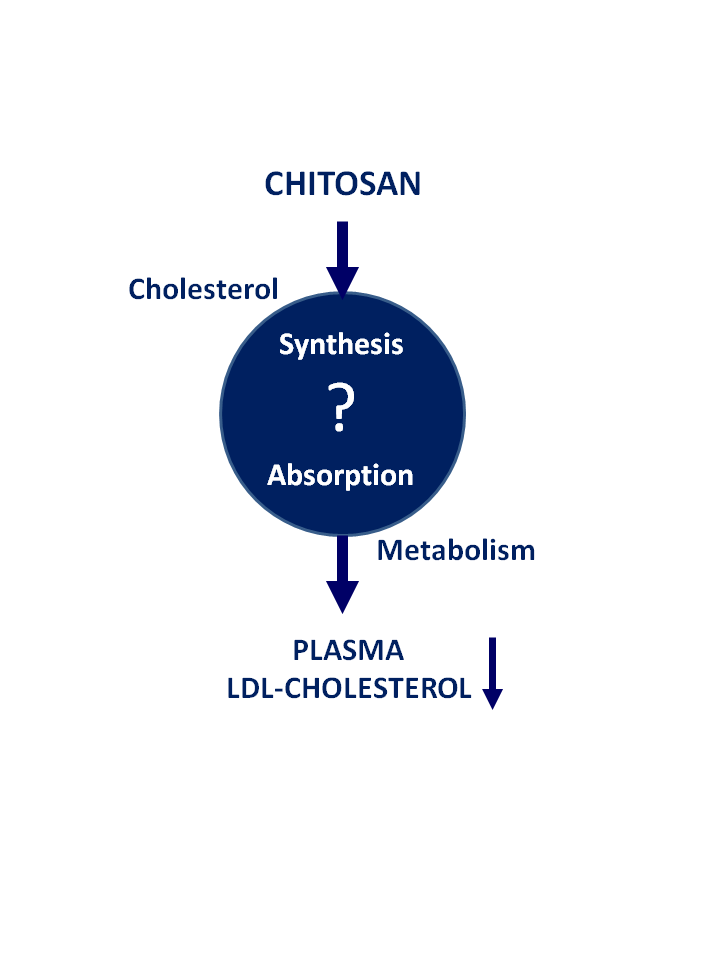Chitosan treatment results in significantly lower plasma LDL-cholesterol concentrations. To test the working mechanism of Chitosan, we measured plasma surrogate markers of cholesterol absorption, synthesis, and degradation to bile acids corrected for cholesterol concentration (R_sterols). One hundred sixteen obese subjects (BMI 31.7, range 28.1 – 38.9 kg/m2) were studied under Chitosan treatment (n=61) and placebo treatment (n=55) during 12 weeks. The participants underwent a short nutrition education on how to improve quality of nutrition and energy expenditure. Daily Chitosan intake was 3200 mg. RESULTS. Plasma LDL-cholesterol concentration decreased significantly stronger (P=0.0252) under Chitosan (-8.67 ± 18.18 mg/dl, 5.6%) than under placebo treatment (-1.00 ± 24.22 mg/dl, 0.9%). This reduction was not associated with corresponding decreases of markers of cholesterol absorption under Chitosan treatment. As a marker for cholesterol synthesis R_lathosterol showed a trend towards a stronger decrease under Chitosan treatment (P=0.0759). Regarding markers of bile acid synthesis, R_7α-hydroxy-cholesterol decreased significantly only under Chitosan treatment, but not stronger than under placebo treatment. In conclusion, a significant selective reduction of plasma LDL-cholesterol under Chitosan treatment is neither associated with an expected reduction of plasma surrogate markers of cholesterol absorption nor with expected increases of markers for cholesterol and bile acid synthesis.

